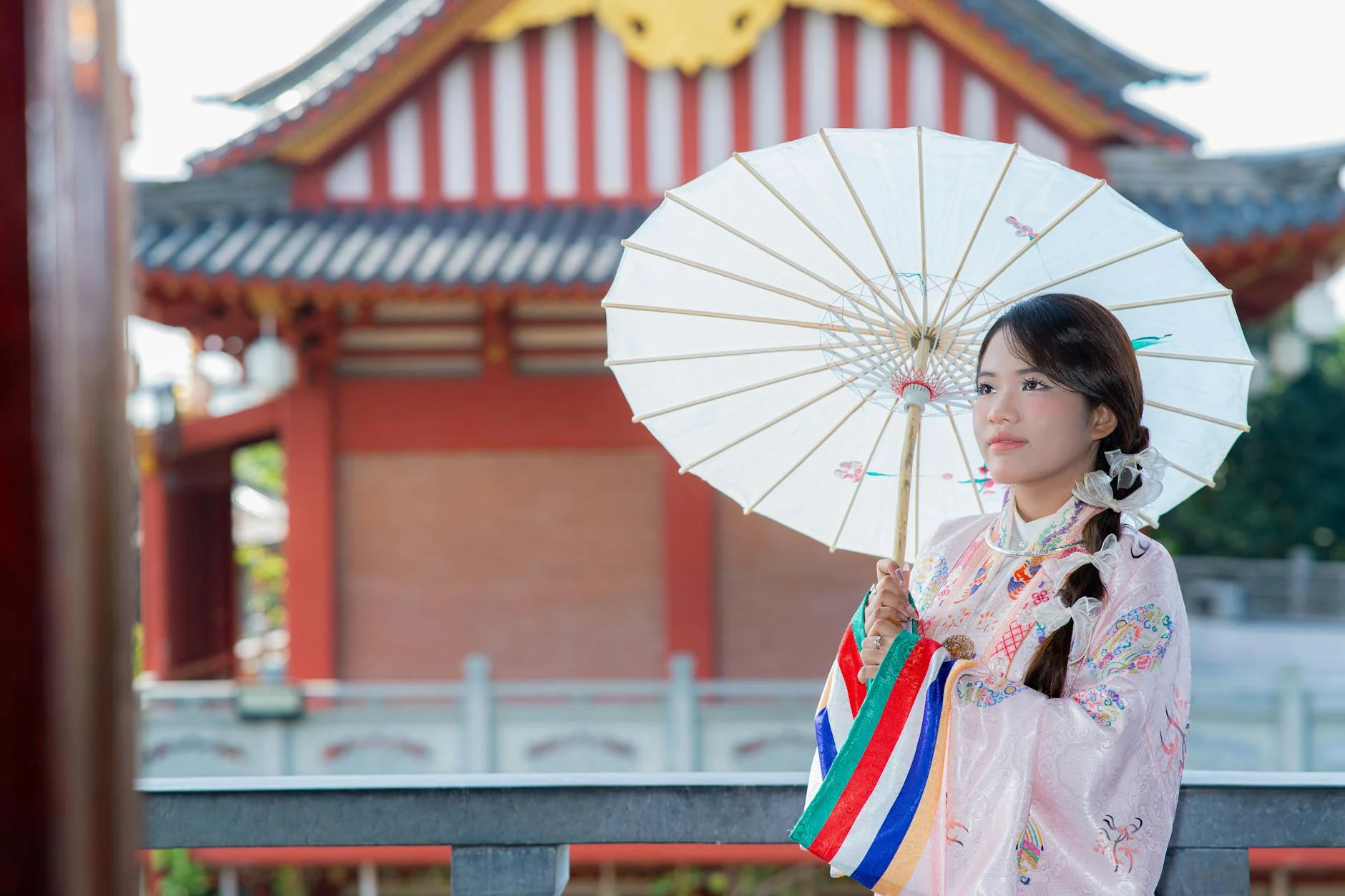A Complete Guide to Visa Sponsorship Jobs in Japan

Finding visa sponsorship jobs in Japan offers exciting opportunities for those looking to work while experiencing a vibrant culture. Many companies across various industries are eager to attract international talent, making it essential for job seekers to know where to look and how to apply.
In this guide, we’ll cover the types of jobs available, the application process, and tips for securing a visa sponsorship. We’ll also highlight the unique challenges and rewards that come with relocating for work. With the right knowledge, we can navigate the job market effectively and take a significant step toward achieving our professional goals in Japan.
Understanding Visa Sponsorship Jobs in Japan
Visa sponsorship jobs in Japan play a critical role for foreign workers seeking employment in this unique country. Many companies in Japan strive to attract skilled professionals from around the world, often requiring visa sponsorship as a means of supporting those new to the job market. Understanding what visa sponsorship entails and the types of visas available is essential for those of us considering this life-changing opportunity.
Definition and Importance
Visa sponsorship refers to the process where an employer supports a foreign worker’s application for a work visa. This means the employer agrees to sponsor the employee, allowing them to legally work and reside in Japan. For us as foreign employees, this is not just a formality; it’s a lifeline to pursue careers in a new country.
Why is it significant? Visa sponsorship ensures that foreign workers can navigate the Japanese immigration system smoothly. Without sponsorship, obtaining a work visa can be complicated and often unattainable. The company acts as our advocate, handling much of the paperwork and legal requirements, which can be overwhelming, especially for those unfamiliar with Japanese regulations.
Types of Visa Sponsorship
Japan offers various types of visas for foreign workers, each designed to accommodate different professions and expertise levels. Understanding these options helps us identify the most suitable path for our career goals. Here are some common visa types:
- Working Visa: This is the most common visa for foreigners intending to work in Japan. It is categorized based on different professions, such as Engineer, Specialist in Humanities, and International Services.
- Highly Skilled Professional Visa: Tailored for those with advanced skills or significant experience, this visa provides benefits like a faster path to permanent residency.
- Specified Skilled Worker Visa: Designed to address labor shortages in specific sectors, this visa allows foreign workers to fill jobs in industries like agriculture, nursing care, and construction.
- Start-up Visa: Aimed at entrepreneurs intending to establish a business in Japan, this visa fosters economic growth through innovation and job creation.
- Cultural Activities Visa: This allows individuals to participate in cultural activities and academic pursuits, which can be beneficial for those looking to immerse themselves in Japanese culture while exploring work options.
Choosing the right type of visa is crucial. Each visa has specific requirements and conditions that we need to fulfill. Understanding these nuances helps us streamline our applications and increases our chances of securing a job in Japan.
Top Industries Offering Visa Sponsorship
When exploring visa sponsorship jobs in Japan, it’s essential to identify which industries actively seek international talent. Various sectors not only welcome foreign workers but also provide the necessary support for visa sponsorship. Below, we examine some of the top industries offering such opportunities.
Technology and IT
The technology sector in Japan is booming and demands skilled professionals. With an ever-growing need for programmers, engineers, and IT specialists, many companies in this industry are ready to sponsor visas for foreign talent. Organizations often require diverse skill sets to innovate and enhance their services.
In tech, visa sponsorship often comes with additional perks, such as relocation assistance and competitive salaries. Are we prepared to embrace roles in this dynamic environment? Positions in firms like Japan Dev signify a strong commitment to hiring international workers. The doors are open for various roles that support visa sponsorship, making this an attractive sector for job seekers.
Education and Teaching
Opportunities in the education sector, especially for teaching English, are plentiful in Japan. Schools and educational programs actively seek foreign teachers, realizing the value brought by diverse backgrounds. English-speaking teachers often receive visa sponsorship as part of their employment package.
We can find numerous programs aimed at enhancing English proficiency in both public and private institutions. Companies like Indeed list various teaching opportunities with visa support, generating pathways for us to share our language skills while immersing ourselves in Japanese culture.
Healthcare
The healthcare industry faces a significant demand for skilled workers. Hospitals and care facilities often require foreign professionals to address labor shortages. Many healthcare organizations are willing to sponsor visas, making it possible for us to enter this vital sector.
Nurses, caregivers, and medical staff from abroad will find job prospects in Japan promising. Companies, such as those listed on Yolo Japan, highlight positions with visa sponsorship available, encouraging healthcare professionals to apply. The need for qualified workers in this field is growing, creating a stable foundation for a career here.
Hospitality and Tourism
Japan is a hub for tourism, creating numerous opportunities in the hospitality sector. Hotels, restaurants, and travel companies continuously seek foreign talent, especially to enhance guest experiences. Many of these establishments offer visa sponsorship to attract experienced professionals willing to contribute to Japan’s vibrant tourism industry.
Roles in hospitality range from management positions to front-line staff, making it accessible for various skill sets. Engaging in this sector allows us to be part of Japan’s dynamic culture while benefiting from visa support. For more details, we can check listings on websites like Glassdoor, showcasing the vast array of hospitality jobs available.
By understanding which industries in Japan offer visa sponsorship, we can focus our job search on sectors that align with our skills and aspirations, paving the way for a successful career abroad.
How to Find Visa Sponsorship Jobs in Japan
Exploring the job market in Japan can be an adventure filled with opportunities, especially when seeking visa sponsorship. Many companies are keen to hire international talent, but knowing where to look and how to optimize our search is crucial. Let’s break down effective strategies to find visa sponsorship jobs in Japan.
Job Portals and Websites
Utilizing the right job portals is essential for our job search. Here are some popular websites that specialize in jobs with visa sponsorship in Japan:
- GaijinPot: This site focuses on opportunities for foreigners and lists numerous positions requiring visa sponsorship. We can easily filter jobs that suit our skills at GaijinPot Jobs.
- Japan Dev: Tailored for tech professionals, Japan Dev offers hand-picked job listings from various tech companies willing to sponsor visas. We can explore these opportunities at Japan Dev.
- Glassdoor: A reliable source for job seekers, Glassdoor lists numerous positions with variable salaries. For our specific need, we can check out Glassdoor’s sponsorship jobs.
- ZipRecruiter: This site features jobs exclusively for Japanese Visa Sponsorship, making it easier for us to find relevant positions. Check it out at ZipRecruiter.
These websites can provide valuable job leads and insights into the hiring landscape in Japan.
Networking and Personal Connections
Networking plays a significant role in the Japanese job market. Building our connections can drastically improve our chances of finding sponsorship jobs. Here are some networking strategies to consider:
- Leverage LinkedIn: We can start by optimizing our LinkedIn profile and marking ourselves as “open to work.” Having a visible profile can attract recruiters and employers looking for talent. Engaging actively with industry-related content can also put us on the radar of potential employers.
- Join Professional Groups: Participating in professional groups related to our field can help us meet people who might know about job openings. Websites like Zentern Internships offer valuable insights on building our network in Japan.
- Attend Networking Events: We should look for local meetups, seminars, or conferences in Japan. Events provide a platform for face-to-face interactions, allowing us to cultivate relationships with industry professionals.
- Utilize Blogs and Forums: Reading and participating in forums dedicated to working in Japan can give us insider information about job leads and personal experiences that might not be available through official channels.
Through proactive networking, we increase our chances of tapping into the hidden job market, where many job opportunities may arise.
Tailoring Your Application
To stand out in the competitive job market, we must tailor our CVs and cover letters specifically for Japanese employers. Here are several best practices to help us create compelling applications:
- Research the Company: Understanding a company’s culture and values is vital. This knowledge should reflect in our CV and cover letter, showing that we align with their goals.
- Include Keywords: We should incorporate relevant keywords from the job description into our application. This helps demonstrate that we have the skills the employer is looking for, ensuring our application passes through any automated screening processes.
- Formatting and Length: Keep our CV concise and well-organized. Ideally, a CV should be one or two pages long, highlighting relevant experience and skills without unnecessary details.
- Craft a Professional Cover Letter: A cover letter should complement our CV, providing insights into our personality and motivations. It should be brief, usually two or three paragraphs, clearly explaining why we want to work for that particular company.
By approaching our job applications strategically, we enhance our prospects of securing that visa sponsorship job in Japan.
Application Process for Visa Sponsorship
Navigating the application process for visa sponsorship can be daunting. However, understanding what documents to prepare and the timeline to expect can simplify the experience. With this knowledge, we empower ourselves to move forward confidently in our job search.
Preparing Required Documents
To apply for a visa sponsorship in Japan, we need to gather specific documents. Having these ready can streamline the application process significantly. Here’s a breakdown of the essential documents:
- Passport: A valid passport is necessary. It should be current and must have at least six months of validity remaining.
- Visa Application Form: We must complete the visa application form accurately.
- Certificate of Eligibility (CoE): This document is often requested for work visas. It is issued by a Japanese immigration authority and confirms that we meet the visa requirements.
- Employment Contract: A signed job offer or employment contract from the Japanese employer must be provided, detailing job specifics, salary, and duration of employment.
- Photographs: We need to submit recent passport-sized photographs. These must meet specific size and background requirements.
- Financial Statements: Proof of sufficient financial means may be required to demonstrate our ability to support ourselves in Japan.
- Educational Certificates: Copies of our relevant educational qualifications and professional licenses, if applicable, should be attached to the application.
While these are general requirements, specific documents may vary based on the visa type. Consulting the Japanese embassy or an immigration expert can provide the most accurate information relevant to our situation.
Understanding the Timeline
Once we submit our visa application, we need to be aware of the typical processing timeline. Understanding the timeline helps us manage our expectations:
- Initial Processing: The first step usually involves the issuance of the Certificate of Eligibility (CoE). This process can take anywhere from three weeks to three months, depending on the specifics of our application and the immigration office’s workload.
- Visa Application Processing: After receiving the CoE, we can apply for our work visa. The actual processing time for this step typically ranges from five to ten business days.
- Collecting Documents: In total, from the initial application until we hold our visa, it could take approximately one to four months. Factors such as local holidays, the completeness of submitted documents, and the specific immigration office’s workload may cause variations.
By preparing our documents meticulously and understanding the expected timelines, we can approach the visa sponsorship application with greater clarity and assurance.
Challenges and Considerations
As we pursue visa sponsorship jobs in Japan, we should be aware of the unique challenges and considerations that can affect our job search and adaptation to the workplace. Understanding these variables can help us navigate the complexities and ensure a smoother transition.
Cultural Differences
Cultural nuances significantly influence the job application process in Japan. To succeed, we need to adapt to local customs. Key aspects include:
- Communication Style: Japanese communication tends to be indirect. This can be confusing for those used to straightforward expression. We must be prepared to read between the lines and understand non-verbal cues.
- Hierarchy and Respect: Japanese workplaces often emphasize respect for hierarchy. Understanding who holds authority and addressing individuals appropriately is crucial. It demonstrates our acknowledgment of workplace culture.
- Group Harmony: Known as “wa,” the concept of group harmony is vital in Japan. Employers prefer candidates who can work well in teams and contribute to a harmonious environment. This means our ability to collaborate is a key factor in hiring decisions.
Adapting to these cultural elements can enhance our chances of securing job offers and thriving in our roles.
Legal Regulations
Understanding the legal regulations surrounding visa sponsorship in Japan is imperative for us. Navigating the visa process involves several key requirements:
- Certificate of Eligibility (CoE): This official document is mandatory for anyone wishing to obtain a work visa. Our employer typically assists with this, demonstrating that we meet the necessary criteria.
- Types of Visas: Japan offers various work visas, each with distinct conditions. Familiarizing ourselves with these options helps us align our skills with the correct visa category. Educational qualifications and work experience often dictate eligibility.
- Employer’s Responsibility: The Japanese employer plays a crucial role in the visa sponsorship process. They must apply for the CoE on our behalf and provide necessary documentation concerning our employment.
- Legal Compliance: Adhering to Japanese laws regarding employment is essential. This includes understanding labor laws and our rights as foreign workers.
Navigating these legal regulations requires diligence and knowledge, ensuring we meet all requirements while securing our jobs in Japan.
FAQ
This section addresses common questions about visa sponsorship jobs in Japan. It serves as a helpful resource for individuals considering relocating for work and wanting to understand the ins and outs of the process more clearly.
What is Visa Sponsorship?
Visa sponsorship refers to the process in which an employer in Japan helps a foreign national obtain a work visa. Essentially, the employer acts as a guarantor, handling the necessary paperwork to support our application and sometimes even guiding us through the local regulations.
If we are thinking about applying for a job, knowing that our employer will sponsor our visa can alleviate some worries, as this fosters a smoother transition into the Japanese workforce.
How Difficult is it for Companies to Sponsor Visas?
The level of difficulty for companies to sponsor visas can vary. Generally, the most critical requirement is that we have at least a bachelor’s degree or significant experience in our field. Companies must be familiar with the visa process, and they usually conduct interviews to assess our qualifications.
Can I Change Employers Once Sponsored?
Typically, changing employers while on a visa sponsored by one company can be complex. The visa is tied to the employer, meaning we generally need to apply for a new visa if we want to switch jobs. However, it’s not impossible; the application process must be coordinated with the new employer.
Exploring this aspect more can help us understand the implications better, and platforms like Reddit often provide real-life insights from others who’ve navigated similar situations.
What Happens if I Resign?
If we decide to resign from a job in Japan that provided visa sponsorship, there are a few considerations to keep in mind. We typically need to either secure another job with sponsorship or prepare to leave Japan before our visa expires.
Where Can I Find More Information?
For more advice and insights, we can visit various resources online. Engaging in forums on platforms like LinkedIn can connect us with others who have similar experiences or questions.
Additionally, examining the discussions on Reddit provides a personal touch and can clarify many doubts regarding the visa sponsorship journey in Japan.
Key Takeaways
In our journey to find visa sponsorship jobs in Japan, there are several crucial elements to keep in mind that can steer us toward success. By focusing on these key takeaways, we can better navigate the complexities of job hunting in a foreign environment, maximizing our chances of securing that sought-after position.
Understanding Visa Sponsorship
Visa sponsorship plays a significant role in our job search. It is essential to understand that this process involves our potential employer supporting our application for a work visa. Consequently, we must ensure that the employers we target are indeed willing to sponsor visas, as this can simplify our immigration journey.
Identifying Top Industries
Certain industries in Japan are more inclined to offer visa sponsorship. Prioritizing opportunities in these sectors can increase our chances of successfully finding a job. Here are the main industries where we can find more visa sponsorship jobs:
- Technology: With a steady demand for skilled professionals, many tech companies are excited to sponsor foreign talent.
- Education: Teaching roles, especially for English language educators, consistently attract visa sponsorship.
- Healthcare: As the healthcare sector confronts labor shortages, numerous organizations are looking for international professionals.
- Hospitality: The vibrant tourism industry in Japan continues to seek foreign workers, especially in hospitality roles.
Understanding the landscape helps us focus our applications strategically.
Tailoring Applications
A tailored application is vital when applying for jobs in Japan. Here are some essential tips:
- Research Each Company: Familiarizing ourselves with prospective employers showcases our enthusiasm and compatibility with their culture.
- Use Keywords: Incorporating specific keywords from job descriptions into our resumes can help in getting noticed during screenings.
- Professional Cover Letter: This document should illustrate our motivations for wanting to work with a specific employer, bridging the gap between our skills and their needs.
Legal Considerations
Understanding the legal framework surrounding visa sponsorship is crucial. We should become familiar with:
- The Certificate of Eligibility (CoE), which our employer typically applies for on our behalf.
- The various types of work visas available and their requirements.
By being proactive about these legalities, we can ease our transition into Japan’s workforce.
Networking Importance
Networking plays an essential role in our job search. By connecting with professionals in our field, we can access hidden job opportunities and receive valuable insights. Utilizing platforms like LinkedIn and attending industry events can substantially boost our visibility.
By focusing on these takeaways, we can approach our pursuit of visa sponsorship jobs in Japan with greater confidence and direction.
Conclusion
The journey to find visa sponsorship jobs in Japan can be both exhilarating and complex. As we gather knowledge, it becomes vital to understand several key aspects that pave the way for our success.
The Path Forward
As we consider our next steps, it’s essential to keep in mind that preparation and persistence are key. By understanding the nuances of visa sponsorship and pinpointing the right industries, we position ourselves favorably in the job market.
Resources for Job Seekers
While seeking opportunities, we must take advantage of multiple job portals. Here are some useful websites to explore:
- GaijinPot Jobs: This platform specializes in jobs for foreigners seeking visa sponsorship.
- Jobs with Visa Support – Yolo Japan: The site is trusted by a large number of users looking for jobs that offer visa assistance.
- Glassdoor – Sponsorship Jobs in Japan: We can find a range of jobs with insights on salaries and company reviews.
Staying Informed
Keeping abreast of the changing landscape of visa sponsorship jobs is essential. By utilizing resources, networking, and tailoring our applications, we can enhance our chances of success. With diligence and the right approach, navigating through the application process can lead us to fulfilling job opportunities in Japan.


